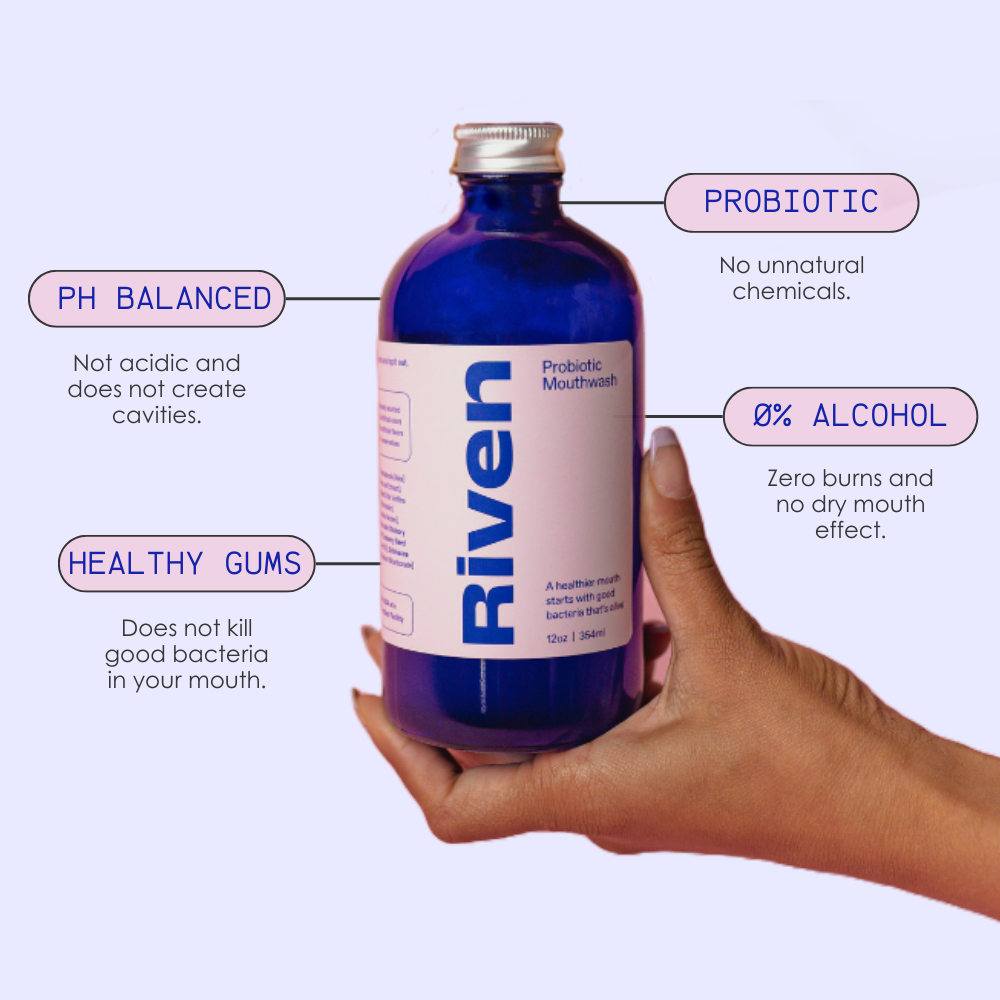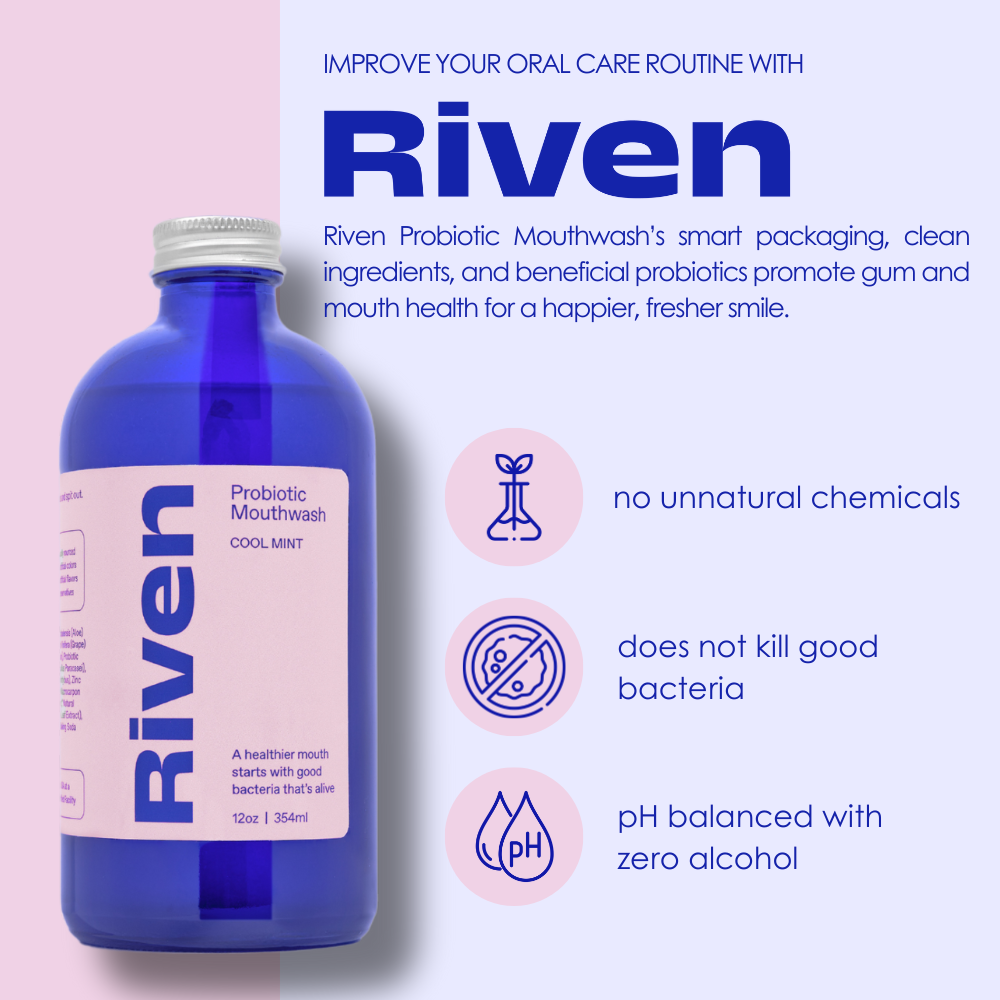Halitosis, commonly known as bad breath, can be an embarrassing and socially distressing condition. While traditional approaches have relied on antiseptic mouthwashes, recent research suggests that oral probiotics may offer a more effective and holistic solution. In this article, we will explore the significance of a recent study on oral probiotics, their potential to reduce the buildup of volatile sulfuric compounds responsible for bad breath, and the best food sources for obtaining specific probiotic strains.

Significance of the Study:
The study "Efficacy of oral probiotics in managing halitosis" highlights the importance of finding alternatives to treat halitosis. Previous recommendations of using antiseptic mouthwashes have been found to have adverse effects, such as decreasing nitric oxide-producing bacteria, which can impact blood pressure and cardiac health. Additionally, these mouthwashes disrupt the bacterial balance in the mouth. The study suggests that nourishing the mouth rather than sterilizing it is a more effective approach. Oral probiotics are gaining attention for their potential to bring the mouth back to a balanced state.
Causes of Volatile Sulfuric Compounds and Bad Breath:
Volatile Sulfur Compounds (VSCs), responsible for bad breath, are produced by anaerobic bacteria in the mouth and throat. These bacteria break down proteins and release odorous byproducts. A decrease in saliva flow can lead to an overgrowth of these anaerobic bacteria, exacerbating bad breath.
Role of Probiotics in Reducing VSC Buildup:
a. Lactobacillus Salivarius: Studies have shown that this probiotic strain can decrease the levels of plaque-forming bacteria, thereby improving halitosis. By outcompeting other bacteria for nutrients, Lactobacillus Salivarius helps to crowd out the pathogenic bacteria responsible for bad breath.
b. Lactobacillus Reuteri: In a randomized control trial, Lactobacillus Reuteri demonstrated benefits such as decreased gingival bleeding and reduced gingivitis. This probiotic strain achieves these results by crowding out the bacteria associated with periodontal disease, a condition that can contribute to foul odors in the mouth.
c. Streptococcus Salivarius: Some studies have shown that Streptococcus Salivarius is found in lower levels in individuals with halitosis. Boosting the levels of this commensal bacterial species can help reduce malodor by restoring a healthier microbial balance.
Best Food Sources of Specific Probiotic Strains:
To incorporate probiotics into your diet, consider the following food sources:
- Lactobacillus Salivarius: Yogurt, sauerkraut, kefir, sourdough bread, and kimchi.
- Lactobacillus Reuteri: Yogurt, fermented foods, and probiotic supplements.
- Streptococcus Salivarius: Some strains are available in probiotic lozenges or supplements.
- Weissella Cibaria: Fermented vegetables like kimchi and sauerkraut may contain this probiotic strain.
Exploring the Future of Oral Probiotics: Potential Applications
As research into oral probiotics continues to expand, experts are investigating their potential applications beyond treating halitosis. Preliminary studies suggest that these beneficial bacteria could play a role in addressing a variety of oral health concerns.
1. Periodontal Disease Management
The link between oral health and overall well-being is well-established, and periodontal disease is no exception. Emerging evidence indicates that specific probiotic strains, like Lactobacillus Reuteri, might contribute to reducing inflammation and promoting healthier gums. By targeting the bacteria associated with gum disease, these probiotics could provide a more natural and sustainable approach to managing periodontal issues.
2. Candida Overgrowth and Thrush
Beyond bad breath, maintaining a balanced oral microbiome is crucial for preventing conditions such as candida overgrowth and oral thrush. Some studies have indicated that certain probiotic strains, like Streptococcus Salivarius, have the potential to inhibit the growth of opportunistic pathogens like Candida albicans. Incorporating these probiotics into your routine might offer a preventive measure against these troublesome infections.
3. Enhanced Nutrient Absorption
Interestingly, the health of your mouth and gut are intricately linked. Oral probiotics, when integrated with a gut-friendly diet, could aid in nutrient absorption by promoting a healthier gut environment. This synergy between oral and gut health underscores the importance of considering the broader impact of probiotics on overall wellness.
4. Personalized Oral Care
As research advances, the potential for personalized oral care regimens tailored to individual microbiomes becomes more feasible. Imagine a future where dental professionals analyze your oral microbiome and recommend specific probiotic strains to address your unique needs. This exciting prospect could revolutionize oral health practices, moving away from a one-size-fits-all approach to a more personalized and effective solution.
Conclusion:
Oral probiotics offer a promising alternative for treating halitosis, addressing the root cause of bad breath by rebalancing the oral microbiome. While the study discussed here highlights positive results, further research is needed to fully understand the efficacy of specific probiotic strains. In the meantime, incorporating probiotic-rich foods into your diet may help promote oral health and combat bad breath. Remember, maintaining good oral hygiene practices alongside a balanced diet is essential for overall oral health and fresh breath.
If you're eager to explore further, Riven has insightful articles on the impact of probiotics on oral well-being. Dive into the comprehensive guide on Probiotics for Bad Breath and learn how these remarkable microorganisms can make a difference. For a deeper understanding of their role in overall oral health, the article on Probiotics for Teeth and Gums provides valuable insights.





